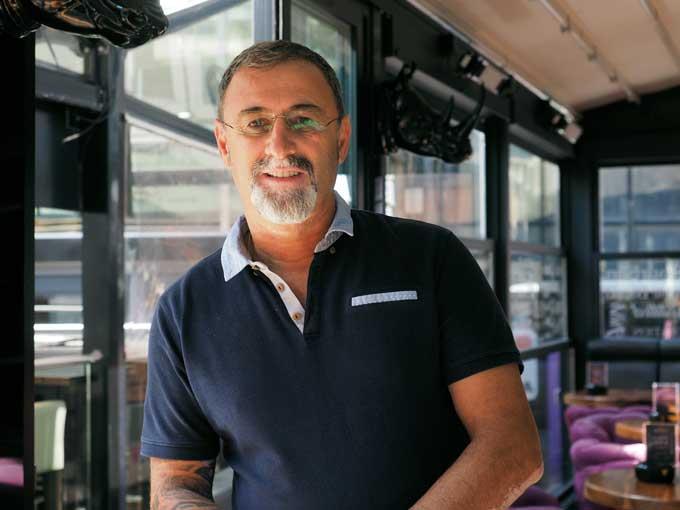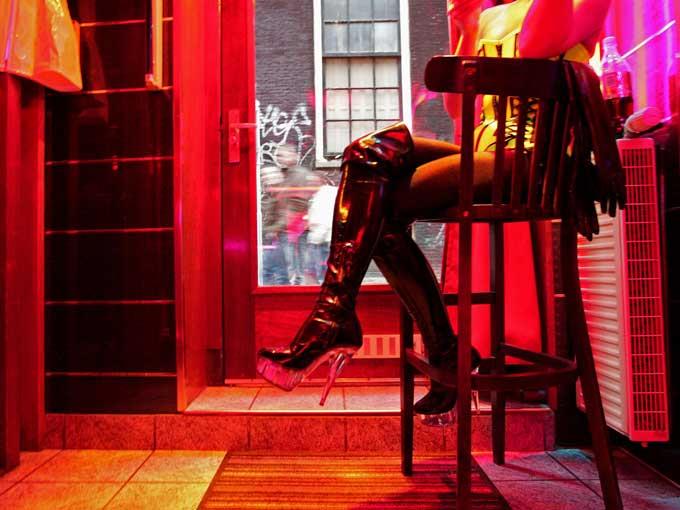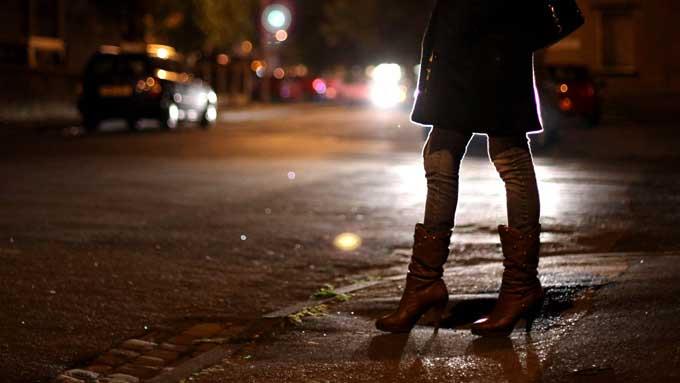Club owner, businessman and hotelier Hugo Chetcuti agrees with the regularisation of prostitution, but believes that a number of safeguards should be put in place to ensure that those going into this line of work realise the decision they are making.
Over the past few weeks, this newsroom has interviewed a number of people who have highlighted the situations in which prostitutes can find themselves, and the reasons why some women become prostitutes, such as drug dependency. Some of those interviewed, including a volunteer who helps prostitutes medically and women from women's rights groups, have backed the Nordic model - which offers women the opportunity to find new employment but not making it illegal to work as prostitutes, but does make it illegal to operate as a pimp and for the customers. Talking to this newsroom, however, Chetcuti says he is more in favour of regularisation and does not support the Nordic model approach.
"I have no intention of getting involved in the prostitution business," he clarified, while saying that he is getting rid of his gentleman's clubs by renting them out.
"I agree with regularisation, mainly because prostitution has been around for many, many years. At least the government would then be able to control it and get something out of it. Like marijuana, every country is slowly introducing legalisation. One day, it will be legal around the world."
He recommends a number of safeguards, however, such as that every person working as a prostitute be subject to a routine psychological review to ensure that he/she is in the right frame of mind to take such a decision, and that they also be subject to drug tests and would not be allowed to work as prostitutes if they tested positive.

Chetcuti also said that were prostitution to be regularised, prostitutes should be obliged to have health - including STD - checks on a regular basis.
"No stay-at-home wife would ever agree with prostitution, for fear that their husband would go with one. But there are also prostitutes for women. It is a small percentage, true, but there are. But then again, if a person is married they are not supposed to consort with prostitutes. It all comes down to the question of whether prostitution would still be around if it is not regularised, and the answer is yes. So then regulate it."
However, Chetcuti does not want to see window prostitutes as one finds in Amsterdam. He did say that he is in favour of clubs and brothels. "You don't want to be passing by with children and see a prostitute in a window. It's like marijuana - if it's legalised, you still wouldn't smoke in front of young children."
Asked about the clash of tourism types, given that regularisation would most likely attract sex tourism which might not go hand-in-hand with the high-end tourists Malta wants to attract, Chetcuti mentioned that there could be specifically designated areas. "In Germany, there are red light districts; it's the same in Brussels."
He argues that he would not have a problem with such establishments being based in Paceville, as long as there aren't people outside trying to entice clients to go inside.
When this newsroom highlighted that there are prostitutes in Malta who are abused and forced to continue in prostitution by their pimps, Chetcuti said that he doesn't believe this is a wide-scale situation. "Nowadays they all work with commission. In the 1960s you'd hear them mentioning the pimps, but I don't think it's like that anymore. In Germany, they work at a club, the club advertises and the clients need to pay to enter the club. If you go on the internet you can find women, men and even transvestite prostitutes advertised. There's nothing to hide. If there was a way to resolve and get rid of prostitution, then fine, but it will always be around. Some people argue that it helps avoid rape, but that isn't true, because I believe that the people who commit rape are excited by it, so that's not the argument."
He is not, however, in favour of prostitutes selling themselves on the streets and this, he said, is where regulation could help. He said that nobody should be forced into prostitution. "Give them a choice. There has to be regulation to protect them, and if they are being forced into it they should report the situation to the police. That is completely wrong."

When this newsroom highlighted the link between drug addiction and prostitution, as other interviewees in the past had pointed out, Chetcuti said that drug addicts must cure themselves. "This is an individual problem which they need to resolve. Such people will always find other ways - such as stealing. By regularising you might be opening up another already existing door, but these people would either see if they can cure their problem, or will go and steal. Since prostitution already exists, regularise it."
Asked about human trafficking on the island, he said that he doesn't believe this exists in Malta, at least not when it comes to adults.
Chetcuti holds that the strip clubs with which he was involved do not offer prostitution, stressing that women working there sign contracts stating that they are not allowed to leave the club with clients during working hours. "Now, if they go on a date later - that's up to them. We don't force women to do their work, they have their percentages, and there are club regulations that must be followed.
"They make money, so there are people who consider going into the business to earn a lot of money every day instead of low wages."

When this newsroom highlighted the issues of migrants having to go into prostitution as they don't have many alternatives - not just in Malta but across the EU (as highlighted by the Vice-President of the European Women's Lobby) Chetcuti said: "I think such situations occur, and not just with African migrants but also migrants from certain parts of Europe. Unfortunately, you have to work to survive. There are countries where there aren't enough jobs and so there are problems. Sadly, some have to go into prostitution as a job."
As the interview ended, Chetcuti pointed out that there are, of course, people who actually prefer to do this kind of work. "I'm talking about escorts here, of course. I would regulate all those involved in the sex industry."